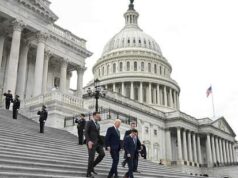Kerala HC notice to Centre on plea challenging IT Rules 2021
The Kerala High Court has issued a notice to the Centre on a plea challenging the constitutional validity of IT Rules 2021.

Kerala High Court
On a petition that challenges the constitutional validity of the Information Technology (Guidelines for Intermediaries and Digital Media Ethics Code) Rules, 2021, the Kerala High Court on Wednesday issued a notice to the central government.
The petitioner, Live Law Media Private Limited, has said that such rules are beyond the legal authority of the parent law, the Information Technology Act, 2000, and are in violation of various Articles of the Constitution.
In the interim order, Justice PV Asha of the Kerala High Court asked the central government to not take any coercive action against petitioners regarding Part III of the IT Rules.
The petitioner said that Part III of the IT Rules seeks to regulate publishers of news and current affairs content [digital news media] and publishers of online curated content [OTT platforms].
“It imposes an unconstitutional three-tiered complaints-and-adjudication structure upon publishers, which makes the executive both the complainant and the judge on vital free speech questions involving blocking and taking down of online material,” the petitioner said.
“This is both arbitrary and violates the rule of law and separation of powers, especially since there is no provision for the aggrieved publishers to appeal against the decision of the Inter-Departmental Committee consisting only of members of the executive,” the petitioner said.
“Part III imposes a disproportionately onerous set of administrative regulations upon Digital News Media, which will make it virtually impossible for small or medium-sized publishers, such as Petitioner No. 1, to function,” the petitioner said.
Finally, Part III requires publishers to comply with a Code of Ethics that is both vague and overbroad in its formulation, and seeks to proscribe constitutionally protected, it added.
The net effect of Part III is to cause a chilling effect upon entities such as the petitioners, in the exercise of their constitutional rights, and to disproportionately infringe their constitutional rights, said the petitioner.L



